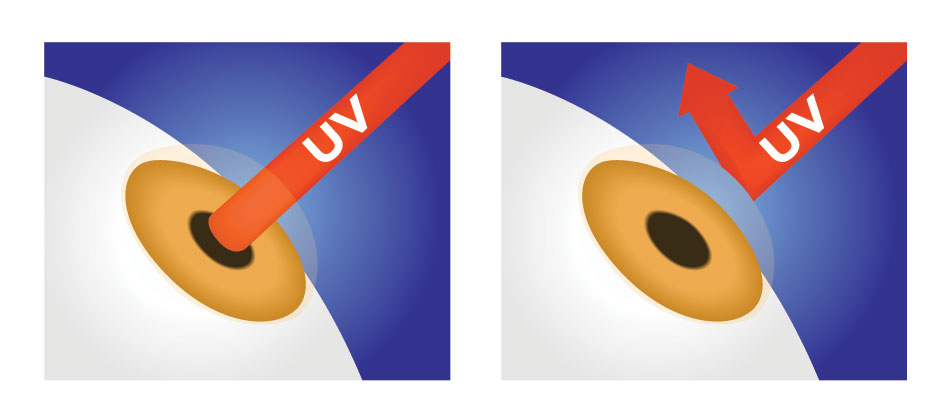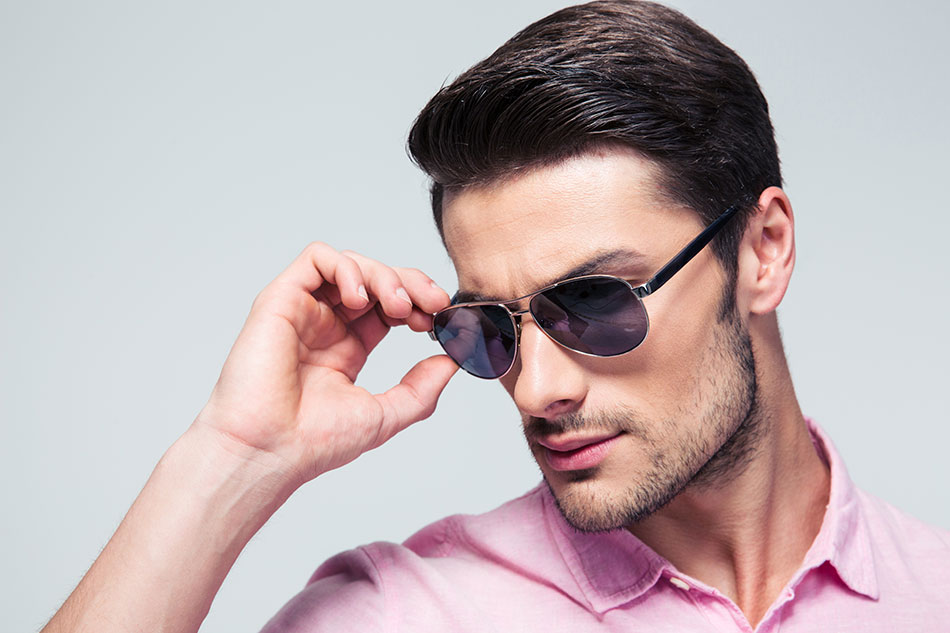Fight the Sun’s Rays With UV Protection Contact Lenses and More!

Everyone knows that UV radiation is bad for the skin. However, you may not realize how bad it is for your eyes. Eye doctors recognize the dangers and recommend sunglasses whenever you are outdoors.
However, there is something rather new on the market. It’s UV protection contact lenses! Here is a quick guide to help you understand the dangers of UV rays and what you can do to protect your eyes if you’re a contact lens wearer.
The Dangers of UV Rays to Your Eyes
So, what exactly is UV radiation? And why do you need to worry about it? We wouldn’t and couldn’t exist without the sun. Nonetheless, the sun’s rays come to us as harmful ultraviolet (UV) radiation.
But this isn’t the only way UV exposure happens. If you use a tanning bed, welding machines or lasers, you can also be exposed.
UV radiation comes in three types:
- UV-A: These are the longest wavelengths of UV radiation. This is the most abundant type of UV radiation on our planet.
- UV-B: These are short wavelengths of UV radiation that penetrate through the ozone layer.
- UV-C: This type of UV radiation does not make it to the earth. Instead, the ozone layer absorbs these rays.
In general, UV-B rays are the most damaging to your eyes. However, eye doctors recommend protecting your eyes from both UV-A and UV-B rays. Why? Because when UV radiation is strong, you may experience photokeratitis. It’s basically sunburning your eye. The symptoms of photokeratitis include:
- Red eyes
- Pain
- Gritty feeling
- Overabundance of tears
- Light sensitivity
Most people recuperate from sunburned eyes without much difficulty and without permanent damage. However, long-term exposure to UV radiation leads to a higher risk of eye diseases that can cause permanent vision loss. These include macular degeneration and cataracts.
Are You at Risk for UV Exposure?

You may wonder if you’re at risk for UV exposure. Here are some factors to consider. If even one these sound like you, you should think about UV protection for your eyes:
- Spend a lot of time outside
- Are an avid skier, mountain climber or beach-goer
- Use a sunlamp
- Spend time in tanning beds
- Live in the mountains
- Live in the US Sunbelt
- Work in medical technology, graphic arts, welding or circuit board manufacturing
- Have had previous cataract surgery
- Take medications that make you sensitive to UV rays
You should see your eye doctor on a regular basis. He or she can catch any issues before they get out of control. Your doctor can also help you understand current eye protection technology, such as contact lenses that block UV rays.
Daily Contact Lenses With UV Protection

Eye doctors and most vision-related organizations suggest wearing sunglasses for all outdoor activities. The problem is that sunglasses allow light to leak in. Even if you buy wraparound sunglasses, light can still get in the top, bottom and sides.
That’s why you should consider daily UV protection contact lenses. They give your eyes an extra layer of protection. These contacts help absorb radiation hitting your eyes. They also safeguard your eye from a variety of angles.
Not all contact lenses have UV protection. However, there are several on the market that have UV-blocking abilities. The FDA divides these contacts into two classes:
- Class I: provides protection against 90% of UVA rays and 99% of UVB rays. These are best for those consistently exposed to high UV radiation.
- Class II: provides protection against 70% of UVA rays and 95% of UVB rays. These are best for general outdoor use.
Pairing Sunglasses With Contact Lenses

Sunglasses paired with contact lenses is a great combination to keep your eyes safe from UV rays. Between the two, UV rays have little chance to get to your eyes.
The most effective combination includes:
- Wraparound sunglasses with UV protection
- Class I UV protection contact lenses
- Hat with a wide brim
Although some contact lenses do have UV protection, the technology is not perfect. To date, contacts are not more effective than sunglasses, even with the new silicone hydrogel lenses. That’s why you should always pair contact lenses with sunglasses.
However, not all sunglasses are the same. Some do not offer much protection at all. So, when picking sunglasses, be sure that they:
- Block at least 99% of UV-A rays
- Block at least 99% of UV-B rays
- Have a wraparound design to keep the most sunlight out of your eyes
- Screen at least 75% of visible light
- Have lenses that match in color
- Are not distorted
- Have gray lenses so that color recognition is correct
For those that need impact resistance, choose lenses made from Trivex or polycarbonate.
Don’t Forget About Short Wavelength Blue-Violet Light

Although we’re talking primarily about UV light, short wavelength blue-violet light is harmful to your eyes too. This type of light hurts the retina. You’re exposed to this light when you use:
- LED lighting
- Smartphones
- Computers
- Tablets
- Other digital devices
Although blue light helps the body regulate our internal clocks, it can damage the eyes. In fact, exposure to short wavelength blue light is a key risk factor for developing macular degeneration. Since the average American spends more than two hours a day on digital devices, more and more people are experiencing regular blue light exposure.
How can you limit your exposure to short wavelength blue light? Here are a few things you can do:
- Wear yellow-tinted lenses that block blue light
- Use a special coating on your glasses to block blue light and glare
- Buy lenses with new technology that absorb harmful blue light and let through good blue light
- Cut back on your digital device usage or take breaks throughout the day
- Add a screen filter to your digital device
- Take vitamins with carotenoids since these help absorb blue light
Be Proactive About Your Eye Health
Now that you know UV radiation is also bad for your eyes, do what you can to protect your eyes from the sun. When thinking about UV protection contact lenses, remember that a combination of preventative measures works best. By following the tips in this guide, you can enjoy the great outdoors while protecting your eyes.